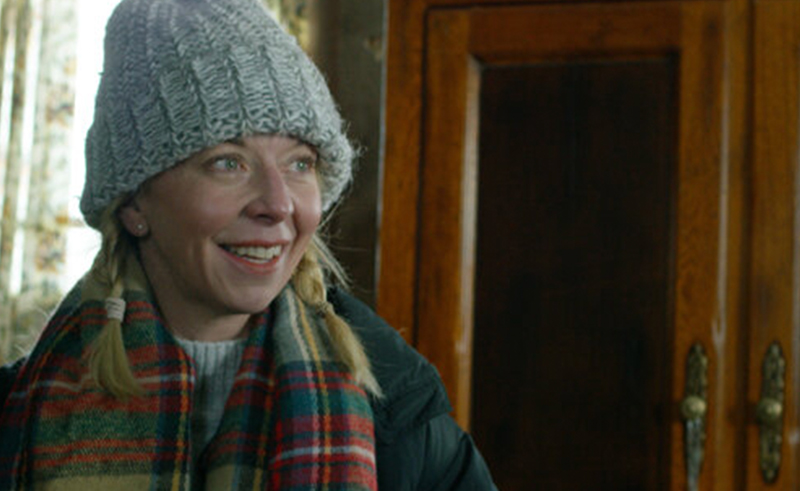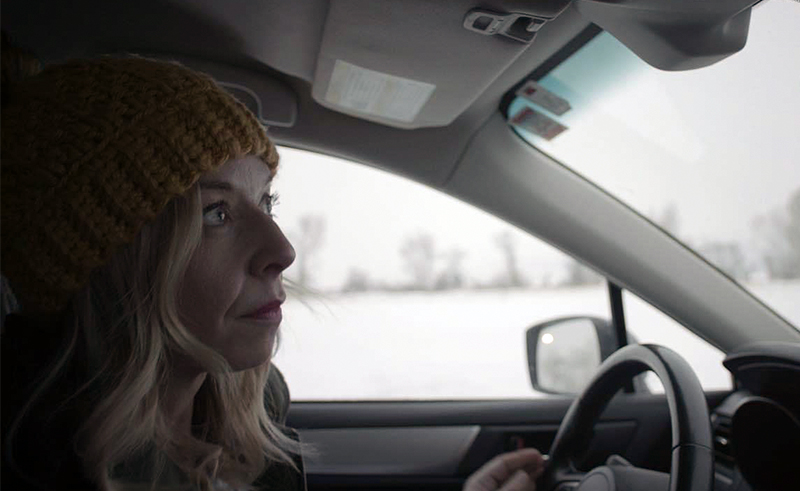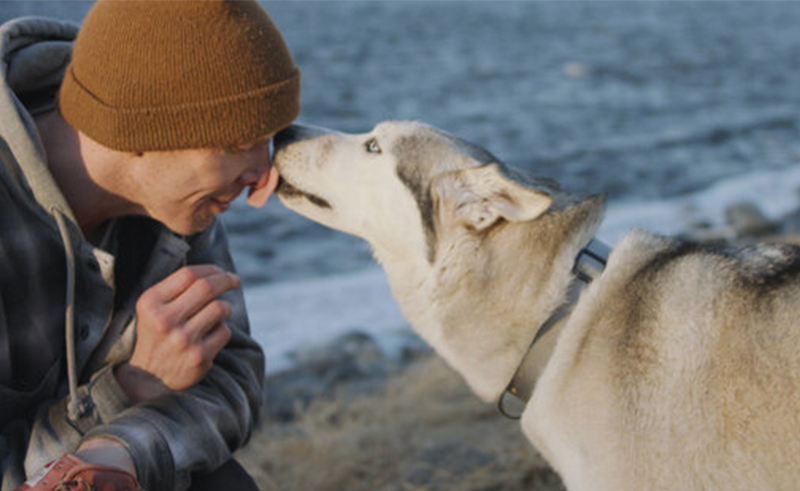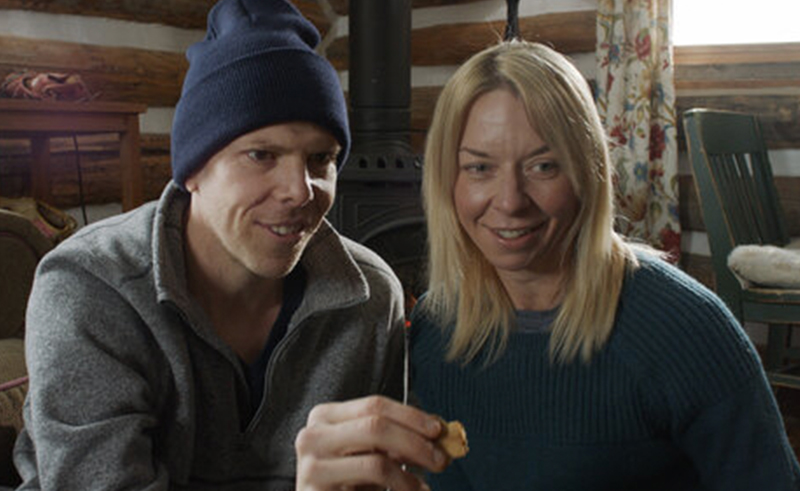When Alyssa Groenig was 5 years old, she told her mom she wanted to be on TV like Wonder Woman. So, she did what any young aspiring actress would do—enrolled in acting classes, participated in high school theater, and received classical training from the University of Montana.
After spending the early years of her career on the stage in Los Angeles, Charleston, and Kansas City—where she’s lived since 2014 and served on the Women in Film & Media KC board—Groenig just completed her first film role in The Year of the Dog, which premieres at the Chelsea Film Festival in New York City on October 15.
In the independent film, Groenig portrays the main female lead, Julie, as her character fosters a partnership with Matt. Matt is a recovering alcoholic who’s just taken in Yup’ik, a stubborn and erratic stray Husky dog. The pair soon meet Julie, who recognizes Yup’ik’s potential as a pull dog that could do well in competitions.
“I read the script, and I really just fell in love with the story,” Groenig says. “It was a story that needed to be told. As an actor, I’ve always wanted to create things that make people feel something—even if it’s anger or madness—that gets people’s emotions. To be able to tell a story that made me feel something—I wanted to be part of that.”
After seeing Groenig’s audition tape, Rob Grabow, the writer, executive producer, co-director, and actor behind Matt’s character, knew the Kansas City actress was the obvious choice for Julie’s character.
“Alyssa blew the audition out of the water,” Grabow says. “She had such a natural acting style. She wasn’t acting. She was just being—I couldn’t believe this was her first feature film.”
Throughout her time as an actress, Groenig has spent many hours observing people in public, trying to understand people who are different from her.
“We all have idiosyncrasies—things we do—some people gesture, some people chew on pencils while they’re thinking. Those things make us who we are,” she says. “I had to think in terms of, ok, I want to portray this character of Julie authentically, but also be a part of myself.”
For example, Julie’s character starts the film feeling like she’s living in the shadow of her mother’s legacy as a dog musher. While Groenig hasn’t personally experienced that scenario, she has had times when she felt like she wasn’t good enough. And then, there was the storyline with the dog—Groenig didn’t have to try too hard to connect with that.
“There’s a reason so many people got dogs during Covid,” she says. “I think that dogs sometimes allow us purpose, they give us unconditional love—something that can’t be taught. I have a dog that is now three—she was my break-up dog—I went to the pet store to hold a dog and burst into tears when I held her. When you have a commitment outside of yourself it changes your life, changes the choices you make. I think dogs have the ability to change you if you let them.”
The film’s central storyline focuses on Matt’s journey to sobriety, and along with the dog, Groenig’s character helps Matt along his journey.
“I’ve had personal experience with people who were alcoholics, people in my life who had drug problems. The thing I learned specifically is that a lot of time it’s a method of coping—we all have some method of coping, whether or not you have an addiction,” Groenig says. “That gave me a better understanding of alcoholism, of how to be sensitive to it, of how to understand that a lot of the time with addicts, it isn’t that they don’t love other people, they don’t love themselves. In that capacity, they don’t know how to cope with their emotions—and that’s painting with a broad brush, my personal experience—but it allowed me to understand Rob’s character.”
Groenig hopes The Year of the Dog helps audience members become more open to their authentic selves. “I don’t know that any of us really know each other in the way we want to be known, in the way we want people to see us, because it’s scary. It’s scary to be vulnerable, it’s scary to share your feelings. But it’s so worth it. Allowing someone to truly know you, there’s freedom to that.”






